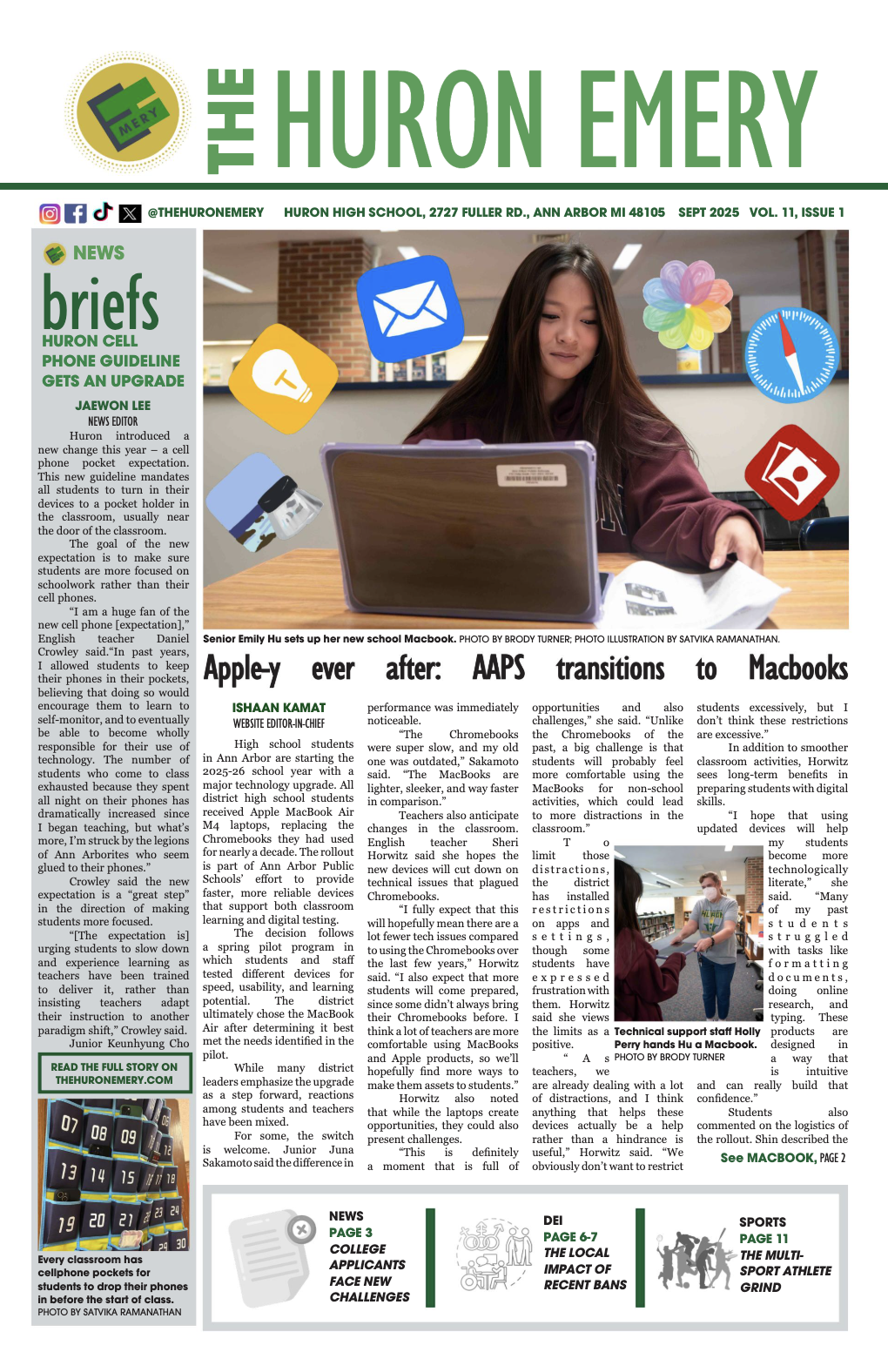Kirk Semple: A profile of New York Times journalist
“The New York Times” by Joe Shlabotnik is licensed under CC BY 2.0
To read Kirk Semple’s work: https://www.nytimes.com/by/kirk-semple Semple’s twitter: https://twitter.com/kirksemple?lang=en
September 10, 2021
Part 1
Kirk Semple never thought he was going to be a journalist. Like his father. Or write for The New York Times. Like his father. He didn’t have any sort of plan. Sure, Kirk would write over the course of his schoolwork and he did enjoy writing but he never thought it’s what he would end up doing.
Despite Kirk’s unclarity, his interest in journalism actually sparked at Yale. His friends worked on a student-run monthly magazine that covered Yale and New Haven communities. Kirk saw how they were producing the issues and decided to join.
“When I arrived I had no plan,” Kirk said, laughing. “ I would say maybe that’s aimlessness or a fear of commitment, I don’t know. I enjoyed hearing my friends talk about the work they were doing and really liked the camaraderie and what they were doing — journalistically.”
As graduation was approaching, Kirk ended up deciding to apply to a couple of newspapers for internships. He was invited to work at the Durham Morning Herald in Durham, North Carolina.
“I thought ‘why don’t I continue doing this for a while?’” Kirk said. “And I thought ‘well this will tide me over for a while. I’ll do this for a few months till I figure out what I really want to do and that was a few decades ago.’ I hadn’t figured out what that other thing was yet.”
Part 2
Working in Durham, Kirk learned from his colleagues who were 20-30 years older than him. He also looked at The New Yorker and The New York Times for inspiration.
“I was 23 when I started,” Kirk said. “And was just trying to learn the nuts and bolts of how to put together a new story and how to write a feature story. I mean you’re kind of a sponge — you’re in college and you’re in your late teens and early 20s — your brain is absorbing everything and if you’re really into something and you know nothing about it, you absorb everything you can from the people around you, who are doing it better than you are.”
From The New Journal (a student-led magazine) and from there he went and worked for the Associated Press in New York and Miami.
Afterward, he wrote investigative and feature stories for an alternative weekly for six years, worked as a freelancer for five years in Bogota, Colombia covering Latin America, in general. He also applied to newspapers.
In 2003 The Times offered him a job.
“Oh it was long and circuitous,” Kirk said. “Not terribly intentional, but I never, I never thought I would work for The New York Times.”
Part 3
At The Times, Kirk would cover immigrant communities in New York on the metro desk, from 2008 to 2015-2016. As much as he loved New York, he wanted to go back overseas and be a foreign correspondent.
“It was the kind of journalism I was in that I had enjoyed the most,” Kirk said. “ And I was ready to pack my stuff up and go someplace else.”
Someplace else turned out to be Mexico City. He arrived in early April of 2016.
“I just love the nature of Mexico City,” Kirk said. “It’s really dynamic. It’s surprising. It’s really complicated. It’s sometimes infuriating. And sometimes it can be charming, it can be beautiful, it can also be really ugly, it can be chaotic, it can be relaxing. It’s many many different things and it keeps me on my toes and that’s what I like about it.”
Before receiving his first story, Kirk had just gone out to dinner, drank a lot of Mezcal with the bureau chief of Mexico City the night before. He received a call from his deputy foreign editor. Turns out there had been a leak of financial documents which revealed offshore investments in Panama, including nation leaders across the world.
“Well, we got your first story,” the editor said.
The story dominated Kirk’s work schedule for the next week. He had decided to do a profile on the law firm that was the center of the controversy.
“Those were incredibly long days,” Kirk said. “We had been working from 6 am to 2 am going at it and wanted to come out as strongly as we possibly could.”
Part 4
Kirk is now 55-years-old. He’s wearing a dark blue shirt and with every question he answers in a room full of high school journalists, he always looks to the side and talks. Never making eye contact and using just his left hand.
“How would I describe myself in three words?” Kirk repeated, chuckling. “The last time I was asked this question was for an application to Stanford University, where I didn’t get into. So I clearly didn’t answer that question, well then, so I probably won’t answer well now, I would say, I’m curious. I would say, I’m alive. And I would say, I’m relatively tall, but that doesn’t really get at the heart of the matter, but I’m going to go with it — relatively tall.”
He even shared one of his favorite stories, which he had reported (in the early ‘90s) while working with the Miami New Times. Former mayor of Miami Beach, Alex Doud had been indicted for multiple charges of corruption and wasn’t found guilty for any of them.
Kirk took it upon himself to track down Alex. Initially, he noticed Alex was wearing hospital scrubs and by a courtyard of this apartment building, rearranging aluminum folding chairs by a pool.
“Are you Alex Doud?” Kirk asked.
“Yes,” he responded. “I can’t talk on the orders of my attorney.”
But, he kept talking and talking.
Kirk and Alex struck up off-the-record conversations from time to time and they would hang out quite often. He ended up writing two feature stories on Doud.
“Those stories taught me something about patience and about the virtues,” Kirk said. “If not the necessity of going into the reporting of a story with an open mind and an empty notebook and also the value of empathy. And just sort of being sensitive to the people you’re talking to and enjoying the conversation and getting in and doing what you can to get them to enjoy the conversation. It also sort of underscored the truth that everyone has this story to tell that dramas unfolding everywhere. And that there are, there are a lot of surprises and, and a lot of fun and some really good stories waiting for us behind closed doors.”










